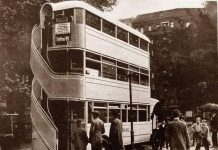Title: Dead Man Walking
Author: Yinka Olugbodi
Genre: Autobiography (Memoir)
Year of Publication: 2020
Pages: 113
Publisher: TBI Publishers
Reviewer: Olutayo Irantiola
Going down memory lane, I remembered the advert by a telecommunications company, in which the young man called his mother in the hinterland to tell her that the new baby has been born into his family, “Na Boy.” The fact must be told that when you have a boy, it is real work and war to ensure that he turns out great. Kudos to Mama Bisi Olugbodi, the mother of 8 boys and a girl!
Having said that, there have been many debates on the appropriate time when is the best time to write a memoir but in my assessment, everyone has a story. However, the choice is when one thinks his story can impact the world more. This is what Mr. Yinka Olugbodi has done to bring his many life experiences- either told or experienced- in which he is the dramatis personae.
The title of the book, Dead Man Walking, is a metaphor and full of humour. As read from grammarist.com, it is an American idiom that dates to sometime in the latter half of the twentieth century. It is a label used for someone who is doomed, someone whose days are numbered in some capacity, someone without a future in a certain situation.
Going back to the book divided into 4 parts, comprised of 28 short stories. The text is a travel through the life of the author. From his early years till the age of 50 which. You might want to ask why the stories are not up to 50, it is because the book is a memoir- a selection of certain aspects of his life- and it points towards the possibility of writing on more areas of his life.
The descriptions in the text are quite apt and one can imagine it. Every boy has a heart full of different exploits which their parents never have an idea of until the day in which they decide to tell the story. Every boy can be akin to a Dead Man Walking upon careful examination.
For people who are conversant with their environment, you can imagine vividly all the areas mentioned in the text- from Tejuosho, Surulere in Lagos; Ejigbo, Ara, Osogbo, Ile-Ife, Iwo in present-day Osun State; Ibadan, Ogbomoso in Oyo State amongst others. The frequent road trip- a gradually dying culture- embarked upon by youngsters and the carnages that laces the roads. The party culture of the generation of the author; the life of a student in the boarding school etc.
There are more serious incidents around his health- wrong diagnosis of his genotype; rescue from the verge of death and the surgical procedures and how God saved him through it. Also, the lunatic chase; the bullet from a hero-cop in Surulere; the tip-off of the Police in his neighbourhood and subsequent chase alongside the officers; the experience of tenants’ resident with the landlords; the attack of a bullion van by armed robbers; the experience in a luxury bus on his way to Aba and others.
One beautiful thing about each story is the dateline. If the author has not been journaling his life; he might have had great issues with dates. It is just about 10 stories that do not have the dateline.
However, they were classified into the appropriate age range.
All of these show us that the author in a reflective and grateful mood has made a recount of the tales of his life and his dedication to his life assignment of doing the will of God. You will find out at the end of the book that the title has a concluding phrase- Dead Man Walking in Christ.
Let’s all live our lives as Dead Men Walking in Christ in order to conquer the fear of death like the author has rightly charged us through the pages of his book.
The book has memorable stories that can even be shared with others. You need to seed this book into someone’s life.

















































